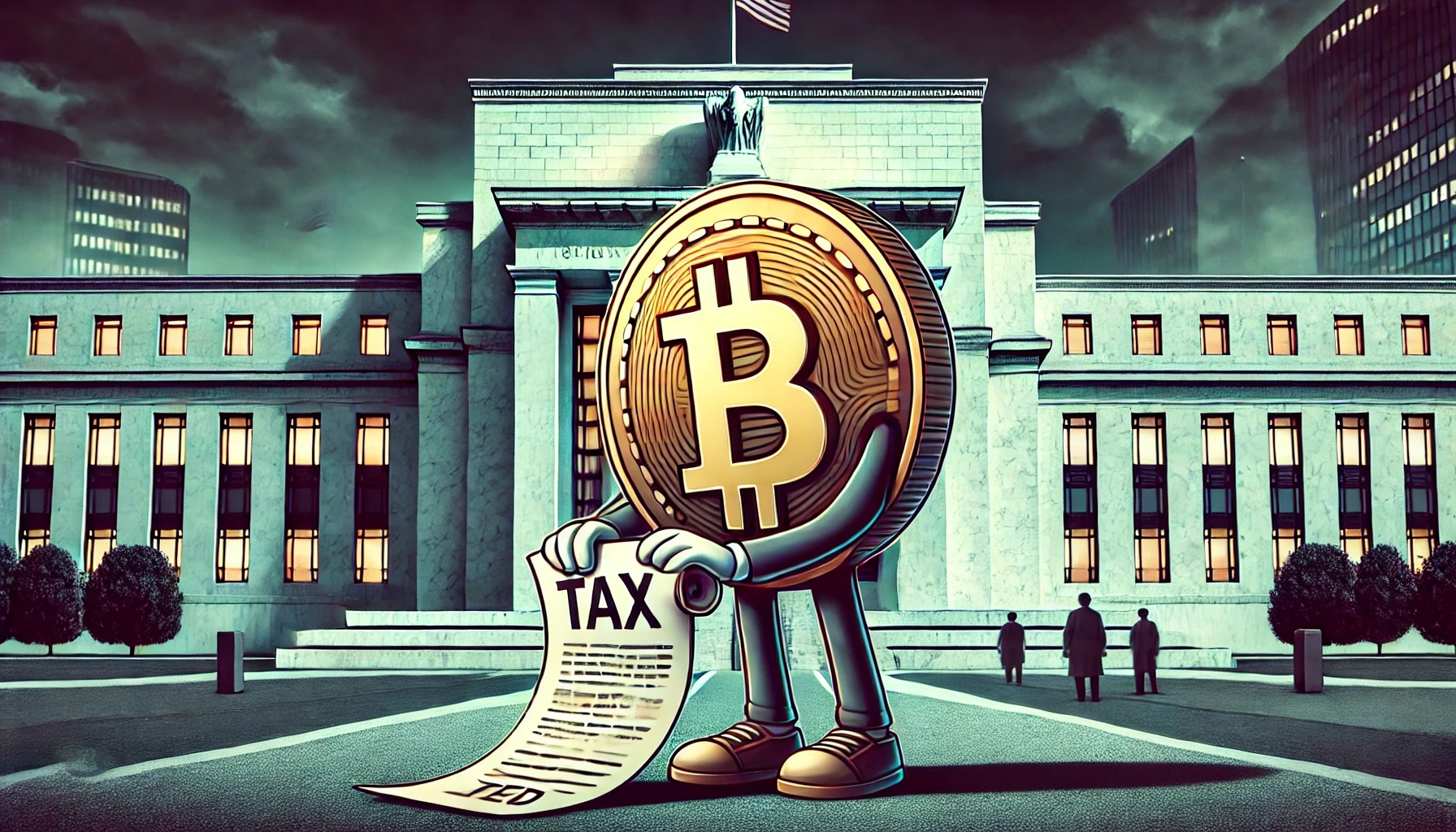The Federal Reserve Bank of Minneapolis is recommending that governments tax or ban Bitcoin to prevent the cryptocurrency from destabilizing fiscal policy. With U.S. deficits at record highs, the Fed suggests Bitcoin could make budget management increasingly difficult.
Fed Proposes Bitcoin Tax to Protect Deficits
To keep budget deficits in check, a new study from the Federal Reserve Bank of Minneapolis recommends taxing or outright banning assets like Bitcoin.
The introduction of Bitcoin poses challenges for the implementation of policies in an economy where the government attempts to maintain permanent deficits through nominal debt, according to a working paper released on Oct. 17 by the Minneapolis Fed.
Bitcoin’s “Balanced Budget Trap” Problem
The Fed warned that Bitcoin might lead to a "balanced budget trap," a situation in which the government is compelled to maintain a balanced budget.
As an example of a "private-sector security" with a fixed supply that lacks "real resource claims," the researchers cited Bitcoin. Bans or taxes, they reasoned, would be the best way to end the conundrum, according to Cointelegraph.
Legal Prohibition or Taxation as Solutions
"A legal prohibition against Bitcoin can restore unique implementation of permanent primary deficits, and so can a tax on Bitcoin."
When tax and other revenue collections fall short of spending, the result is a primary deficit. This does not include interest payments on debt.
U.S. Deficits and Bitcoin’s Impact
The word "permanent" is crucial when describing the primary deficit since it indicates that the government intends to continue spending more money than it collects indefinitely.
The total amount of the United States' accumulated national debt is $35.7 trillion. The yearly disparity between expenditure and tax collection, known as the primary deficit, is, nonetheless, close to $1.8 trillion at the present time.
Rising Interest Costs Worsen Deficit
Interest payments on Treasury debt increased by 29% to $1.13 trillion as a result of higher rates and more debt to finance, according to Reuters' reporting on October 19. This deficit will be the greatest outside of the COVID-19 era.
Critics Respond to Bitcoin Proposals
In a comment posted on October 21, Matthew Sigel, head of digital asset analysis at VanEck, stated that the Minneapolis Fed had joined the European Central Bank in its criticism of Bitcoin, noting the institution "fantasizes about ‘legal prohibition’ and extra taxes on BTC to ensure govt debt remains the ‘only risk-free security.'"
Past Research Supports Bitcoin?
Meanwhile, Dan McArdle, co-founder of Messari, uncovered a paper titled "Money is Memory" from 1996 published by the Minneapolis Fed. This article, in an intriguing twist, argued in favor of Bitcoin twelve years before its creation.
According to the article, money is "equivalent to a primitive form of memory," "available in fixed supply," and does not "enter production."
ECB Joins Bitcoin Criticism
Claiming that older Bitcoin holders are benefiting at the expense of newer ones, the ECB published a document on Oct. 12. It contended that the asset's price should be capped or outlawed entirely to prevent any further regulation.
Posting on X on October 20, Jürgen Schaaf, an advisor to the ECB's senior management, joined the growing chorus arguing against Bitcoin.
His reasoning was as follows: "There are compelling reasons to advocate for policies that curb Bitcoin’s growth or even eliminate it." He said, "Non-holders should recognize that Bitcoin’s rise is fueled by wealth redistribution at their expense."



 Toyota Plans $19 Billion Share Sale in Major Corporate Governance Reform Move
Toyota Plans $19 Billion Share Sale in Major Corporate Governance Reform Move  Trump Orders Federal Agencies to Halt Use of Anthropic AI Technology
Trump Orders Federal Agencies to Halt Use of Anthropic AI Technology  Hyundai Motor Plans Multibillion-Dollar Investment in Robotics, AI and Hydrogen in South Korea
Hyundai Motor Plans Multibillion-Dollar Investment in Robotics, AI and Hydrogen in South Korea  ETHUSD Weakens Further: $1,825 CMP, All EMAs Red, Sell Rallies @ $1,948–50
ETHUSD Weakens Further: $1,825 CMP, All EMAs Red, Sell Rallies @ $1,948–50  Samsung and SK Hynix Shares Hit Record Highs as Nvidia Earnings Boost AI Chip Demand
Samsung and SK Hynix Shares Hit Record Highs as Nvidia Earnings Boost AI Chip Demand  Amazon’s $50B OpenAI Investment Tied to AGI Milestone and IPO Plans
Amazon’s $50B OpenAI Investment Tied to AGI Milestone and IPO Plans  FxWirePro- Major Crypto levels and bias summary
FxWirePro- Major Crypto levels and bias summary  Hyundai Motor Group to Invest $6.26 Billion in AI Data Center, Robotics and Renewable Energy Projects in South Korea
Hyundai Motor Group to Invest $6.26 Billion in AI Data Center, Robotics and Renewable Energy Projects in South Korea  Microsoft Gaming Leadership Shake-Up: Phil Spencer Retires, Asha Sharma Named New Xbox CEO
Microsoft Gaming Leadership Shake-Up: Phil Spencer Retires, Asha Sharma Named New Xbox CEO  Anthropic Refuses Pentagon Request to Remove AI Safeguards Amid Defense Contract Dispute
Anthropic Refuses Pentagon Request to Remove AI Safeguards Amid Defense Contract Dispute  Netflix Stock Jumps 14% After Exiting Warner Bros Deal as Paramount Seals $110 Billion Acquisition
Netflix Stock Jumps 14% After Exiting Warner Bros Deal as Paramount Seals $110 Billion Acquisition  Nvidia Earnings Preview: AI Growth Outlook Remains Strong Beyond 2026
Nvidia Earnings Preview: AI Growth Outlook Remains Strong Beyond 2026  FxWirePro- Major Crypto levels and bias summary
FxWirePro- Major Crypto levels and bias summary  Samsung Electronics Stock Poised for $1 Trillion Valuation Amid AI and Memory Boom
Samsung Electronics Stock Poised for $1 Trillion Valuation Amid AI and Memory Boom 
































